Five Reasons The New Parliament Is Going To Be An Absolute Mess
We could be looking at one of the most interesting and chaotic parliaments in recent history.
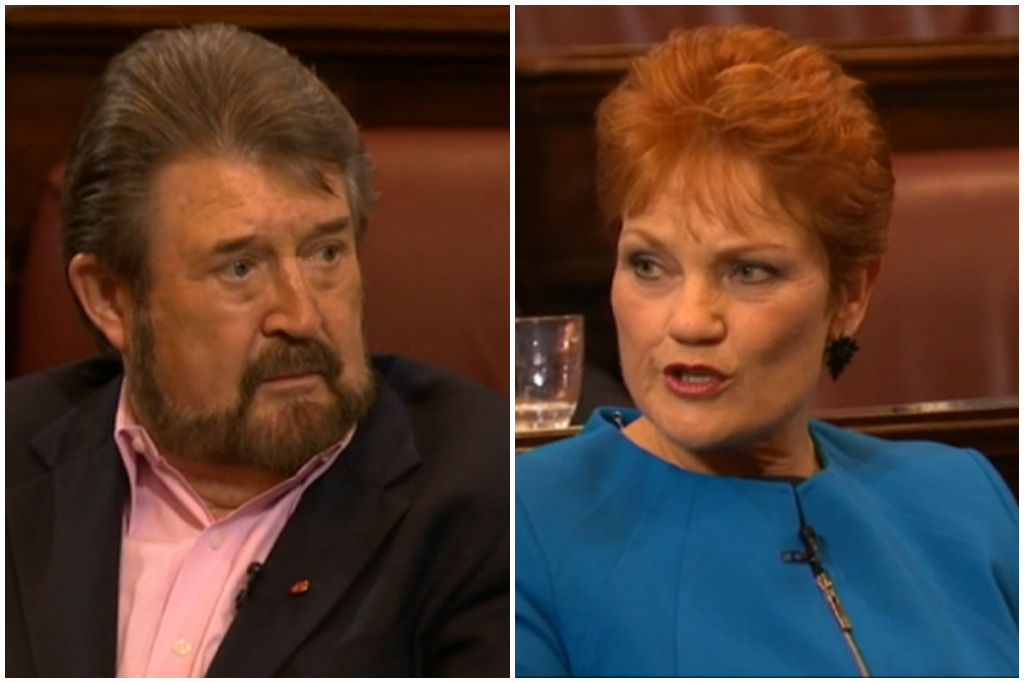
Nearly two months after the federal election was held our federal politicians have finally rolled back into Canberra for their first parliamentary sittings. The most contentious issue so far is clearly the proposed plebiscite on marriage equality, but Prime Minister Malcolm Turnbull wants everyone to focus on “budget repair” instead. Good luck, mate.
With a record number of minor party senators, internal tensions within the Coalition, Labor and the Greens, and a wafer thin government majority in the House of Representatives, we could be looking at one of the most interesting and chaotic parliaments in recent history.
We thought it was a good time to take a look at the current situation in Parliament and try and pinpoint where some of the fireworks could be coming from.
–
1. The Senate Crossbench Is Going To Be A Beautiful Nightmare
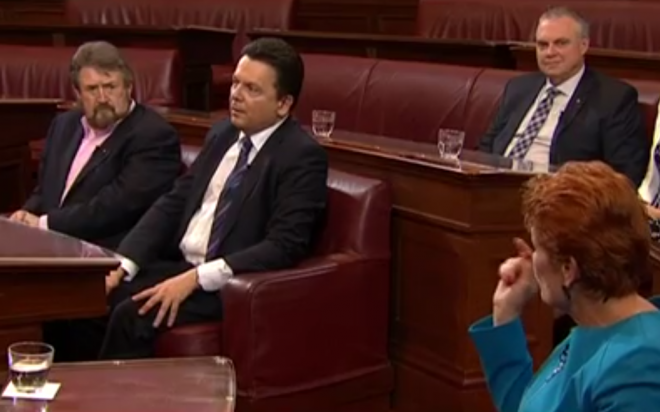
Senator Pauline Hanson. Senator Jacqui Lambie. Senator Derryn Hinch. It’s any government’s worst nightmare. Malcolm Turnbull is going to have to negotiate with an assortment of minor party senators whenever Labor and the Greens join forces to block legislation, which is likely to be pretty often.
Both Pauline Hanson and Nick Xenophon control blocs of three to four senators. But the other four crossbenchers are all on their own, meaning the government will have to spend an enormous amount of time and energy negotiating and cajoling them into supporting legislation. To make matters even worse, there doesn’t seem to be much the crossbenchers agree on.
Some of them want to repeal elements of the Racial Discrimination Act and others want it retained. Some crossbenchers want a marriage equality plebiscite and others think it’s a waste of money. During a Sky News forum last night the minor party senators clashed on everything from religion to potential reforms to the Family Court.
The only thing we know for sure is that the Senate is going to be very unpredictable and will likely make the government’s job of negotiating legislation through the parliament incredibly hard.
–
2. Malcolm Turnbull’s Own Party Is Pretty Divided
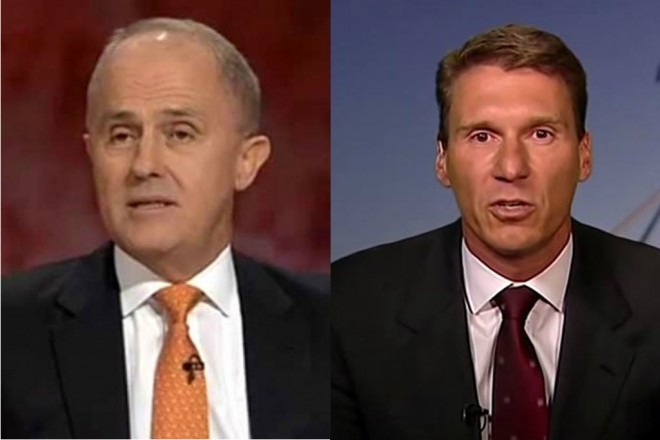
The Liberal party has been dealing with internal turmoil since the 2013 election. Turnbull might have successfully deposed Tony Abbott, but the conservatives in his party haven’t stayed quiet. They’ve been making their voices heard on everything from marriage equality to race hate laws.
A few weeks ago the PM declared that changes to the Racial Discrimination Act weren’t a matter of priority for his government. But it looks like his own party isn’t paying attention. Today a majority of the Coalition senate backbench sponsored a bill to weaken Australia’s race hate laws. The push to reform the laws is being lead by Senator Cory Bernardi, a conservative from South Australia. The bill is unlikely to pass, but it shows the challenge Turnbull faces in controlling his own party.
The issue of marriage equality also shows how beholden Turnbull is to the conservative faction within the Liberal party. When he became leader he had to promise to stick to Tony Abbott’s plebiscite policy. If he ditches the policy he’s likely to face intense pressure on his leadership. Over the next three years we’re likely to see more attempts by conservatives to control the government’s political agenda.
–
3. Labor Has Its Own Internal Divisions
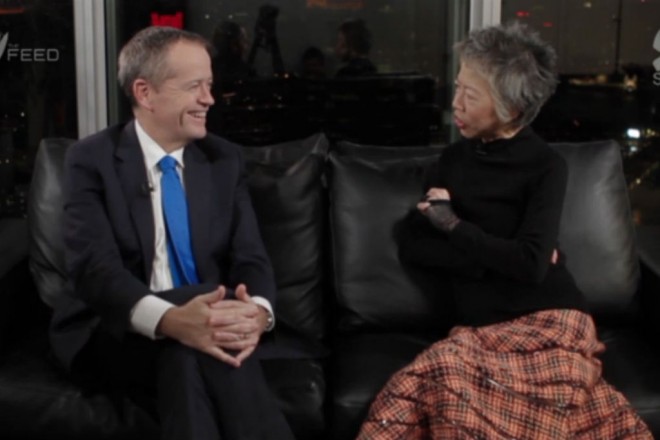
No, Lee Lin Chin isn’t planning on challenging Bill Shorten (as far as we know). We just love an excuse to drop her into a story about Australian politics.
Labor has been pretty united since losing the 2013 election. There were rumours that Anthony Albanese might challenge Shorten for the leadership in the event of a poor election result this year, but that didn’t end up happening.
Bill Shorten Had A Tense Exchange With An Anglican Priest About Same-Sex Marriage
More recently there’s been factional flare up over who gets plum Shadow Cabinet positions. Senior Labor Left stalwart Kim Carr, a close ally of Shorten’s, had been relegated by his own faction. They decided that he’d been around long enough and it was time to put forward someone younger for the Shadow Cabinet. Unsurprisingly Carr wasn’t happy about this and decided to form his own faction, which entitled him to a position in Shorten’s Cabinet.
The recriminations from this pretty petty dispute are still playing out. One of Carr’s allies, Senator Gavin Marshall, has lost the cushy position of Deputy Senate President as a result of the behind the scenes wheeling and dealing. But in order to keep him onside, Shorten gave Marshall another gig as the chair of a Senate committee, to compensate for the paycut he was about to get.
These factional tensions are unlikely to present a major challenge for Shorten but they highlight the fact that he has to work hard to keep his parliamentary allies on side. The whole Carr affair shows that Shorten isn’t taking anything for granted and is keeping his friends close.
–
4. There’s Some Tension In The Greens Too
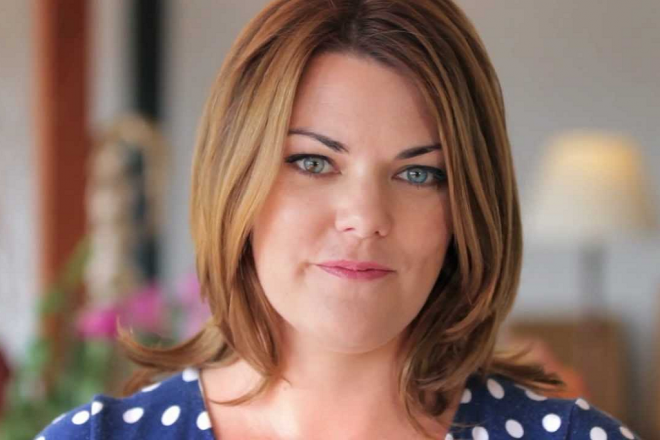
The Greens are generally one of the most stable political parties in parliament. They’ve only had three leaders in the past 20 years. But a recent portfolio reshuffle has kicked off a very public round of acrimony.
Sarah Hanson-Young has been the Greens spokesperson for immigration for nearly a decade. In that time she’s built up a reputation as a strong advocate for asylum seekers and a furious opponent of both Labor and Liberal government policies on mandatory offshore detention.
Last week the leader of the Greens, Richard Di Natale, announced that Hanson-Young had been stripped of her portfolio. Tasmanian Senator Nick McKim was appointed as immigration spokesperson and Hanson-Young picked up trade, finance and education. All pretty solid portfolio areas.
But Hanson-Young wasn’t happy with the decision, and made that very clear. “I don’t agree with it, I don’t accept it,” she told the ABC. Di Natale has denied that the portfolio reshuffle is an indication that the party is looking to soften it’s policy on refugees. It’s pretty unusual for Greens MPs to publicly criticise each other and it will be worth watching to see the tensions linger on over coming months.
–
5. The Government Has A One Seat Majority So Every Single Vote Will Count
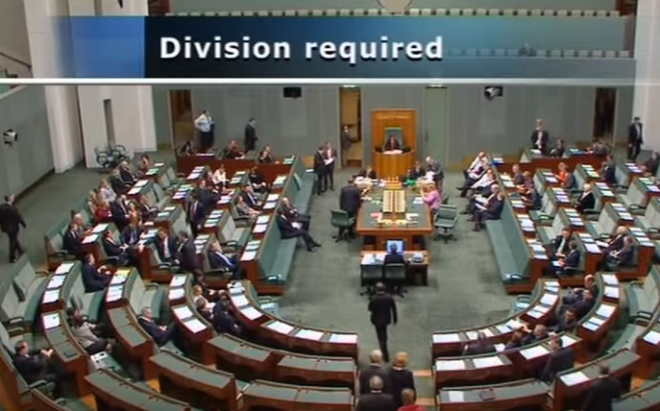
Most of the time the government doesn’t have to worry about the numbers in the House of Representatives. They generally have a pretty comfortable majority, most laws sail on through and attention is generally fixated on the senate where the situation is more fluid.
But this time around the Coalition has a majority of exactly one. That means every single vote is important. If someone misses a vote because they’re stuck in the bathroom, having a smoke or are otherwise occupied, it’s a very big deal. Labor is expected to cause as much mayhem for the government as possible by calling votes whenever they can.
It’s not just Labor that Malcolm Turnbull has to watch out for. He needs to make sure that all of his MPs are rock solid behind his agenda. It will only take one MP to cross the floor and legislation could be in jeopardy. One MP has already threatened to cross the floor on changes to superannuation.
The PM is going to have his work cut out for him.
–
Australian politics has been in a pretty tumultuous state in recent times. We’ve had five prime ministers in the past six years. The last election saw a record vote for independents and minor parties, proving how disenchanted the public is with politics.
Given the high likelihood of chaos and division over the next three years it’s unlikely Australians will get particularly enthusiastic about federal politics anytime soon.

Sums it up.